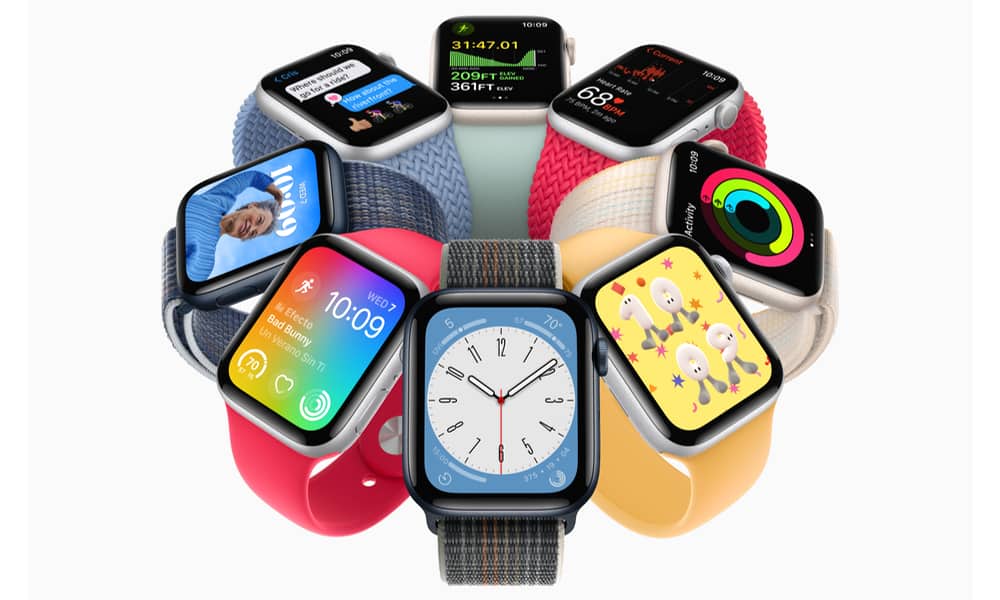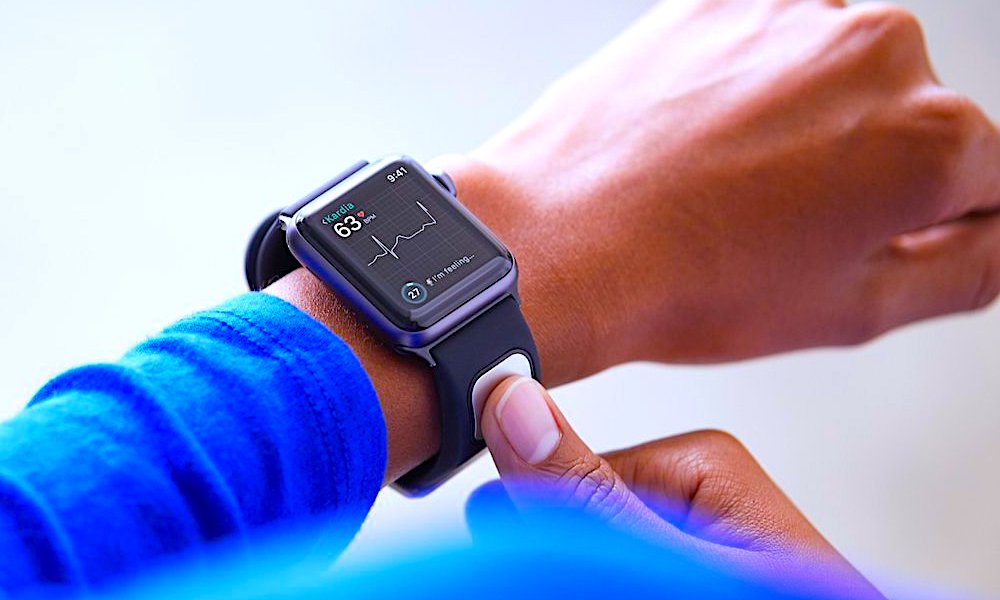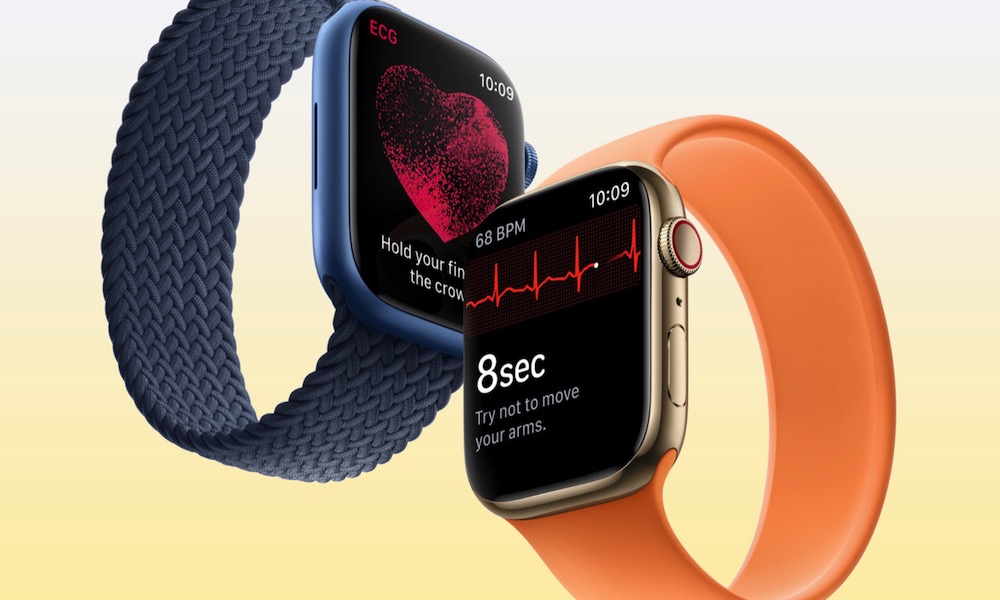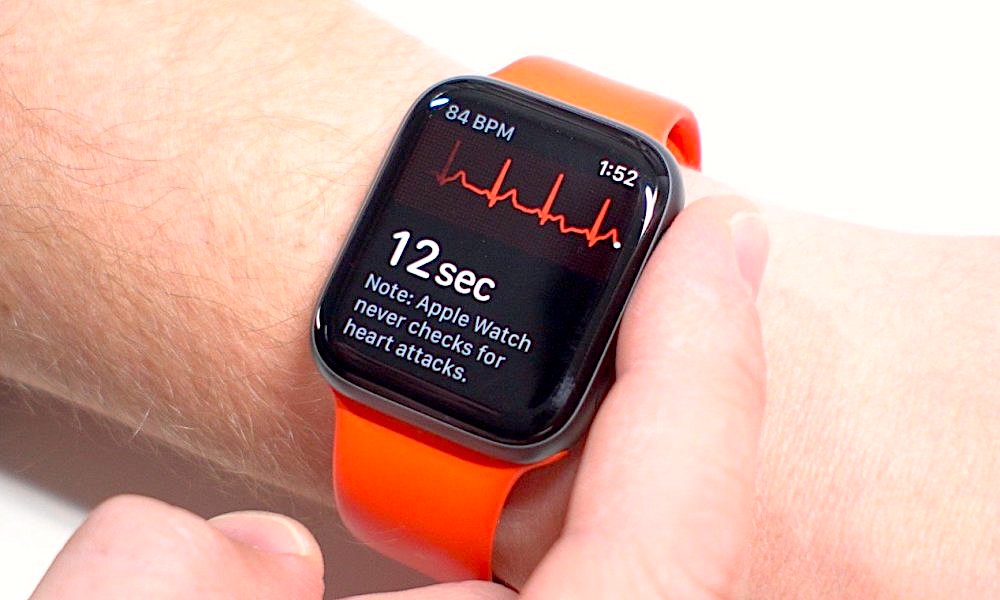These Apple Watch Models Could Soon Be Banned in the United States
 Credit: Apple
Credit: AppleToggle Dark Mode
The Apple Watch Series 8 and Apple Watch Ultra could soon face an import ban preventing them from being sold in the United States if a health technology company convinces legal authorities that its patents are valid.
This latest news follows years of legal wrangling that came to a head last June when a judge from the International Trade Commission (ITC) ruled that Apple had infringed on several patents when it introduced the ECG feature in the Apple Watch Series 4 in 2018.
The patents in question were held by AliveCor, which developed an ECG strap for the Apple Watch in 2017 — a year before Apple added this capability directly to its wearable. AliveCor responded by filing individual lawsuits against Apple, accusing the company not only of patent infringements but also antitrust violations, claiming that Apple holds an illegal monopoly on heart rate monitoring apps for the Apple Watch — and that it’s putting the lives of its users in jeopardy by doing so.
In December, the ITC confirmed its June ruling that Apple had infringed on AliveCor’s patents. In response to AliveCor’s request for a complete ban on the sale of infringing Apple Watches, the ITC issued a Limited Exclusion Order (LEO) to that effect on Dec 22, 2022. This order must then be reviewed by the White House, which has 60 days in which the President can choose to block the decision.
That window has now passed without a negative response by President Biden, effectively clearing the ITC ruling in AliveCor’s favour. In a statement to AppleInsider, AliveCor CEO Priya Abani applauded President Biden “for upholding the ITC’s ruling and holding Apple accountable for infringing the patents that underpin our industry-leading ECG technology.”
It’s Not Over Yet
If the ban goes through, it will impede Apple’s ability to sell the Apple Watch Series 8 and Apple Watch Ultra in the United States, as the company would be unable to import new models from its manufacturing partners in China and elsewhere. Only the Apple Watch SE would be exempt since it doesn’t include any ECG features.
However, in an interesting twist, it seems that AliveCor now has to convince an appellate court that the patents Apple has been found guilty of infringing are, in fact, valid — and therefore enforceable.
After the ITC ruling last summer that Apple had infringed AliveCor’s patents, Apple’s lawyers decided to take a different tack — they brought a case to the U.S. Patent Trial and Appeal Board seeking to have the three patents in question declared invalid — and they won.
As you might expect, a company can’t be found guilty of infringing a patent that doesn’t exist, which is what happens to a patent when declared invalid. Apple’s move took the wind out of AliveCor’s sails by striking at the very foundation of the company’s case.
Naturally, AliveCor has appealed that patent decision to a higher court. The ban order is already in place, but on hold, so if AliveCor were to get the decision reversed, the ban would take effect automatically. However, Apple would surely appeal the new decision, undoubtedly asking for a stay on the ban until a final decision could be made. Whether Apple would succeed is an open question, but so is the matter of AliveCor prevailing on its appeal in the first place.
AliveCor’s Case
There’s never been a shortage of frivolous lawsuits aimed at Apple, but it’s fair to say that AliveCor’s case against Apple isn’t one of them. It’s not even a matter of a smaller company crying sour grapes because it was legitimately “Sherlocked” by Apple.
Apple frequently adds new features to its products that have been done before by other manufacturers and developers. That’s just the way technology progress goes, and just because somebody had an idea before Apple did doesn’t necessarily mean it’s off-limits — especially if the feature is a reasonable evolution of the technology.
The ECG is one of the best examples of this. It’s hard to argue that Apple wouldn’t have eventually come up with this idea on its own. It’s a natural fit for a device that’s worn on the wrist. The same logic that led AliveCor to develop its KardiaBand strap would have prompted Apple to consider building an ECG feature into the Apple Watch regardless of whether AliveCor’s product ever existed.

Unfortunately, the case seems to go much deeper than two companies coming up with a fairly obvious idea. At the heart of AliveCor’s complaint is the claim that Apple effectively stole the idea directly.
Some of AliveCor’s claims are debatable, including the notion that its founder, Dr. Dave Albert, was the first to realize that smartwatches “were the perfect device to monitor one’s heart for potentially life-threatening conditions.” However, AliveCor also notes that it worked closely with Apple to ensure KardiaBand would work well with the Apple Watch, openly sharing information that the larger company allegedly used to push AliveCor out of the market for health monitoring apps.
This included pre-announcing a new heart initiative for the Apple Watch on the same day that AliveCor planned to announce KardiaBand’s FDA clearance, as well as “literally rewriting the rules” to block the AliveCor’s SmartRhythm app from the App Store and “resort[ing] to behind-the-scenes acts of sabotage” to “render SmartRhythm inoperable.”
These claims are at the foundation of an antitrust suit that AliveCor has filed separately from the patent infringement case. In March 2022, U.S. District Judge Jeffrey White ruled that AliveCor’s allegations “plausibly establish that Apple’s conduct was anticompetitive” after Apple’s lawyers sought to have the lawsuit dismissed. For its part, Apple maintains that the ECG feature was a natural product improvement that does not inherently violate federal antitrust laws. The antitrust case isn’t expected to go to trial until next year.









